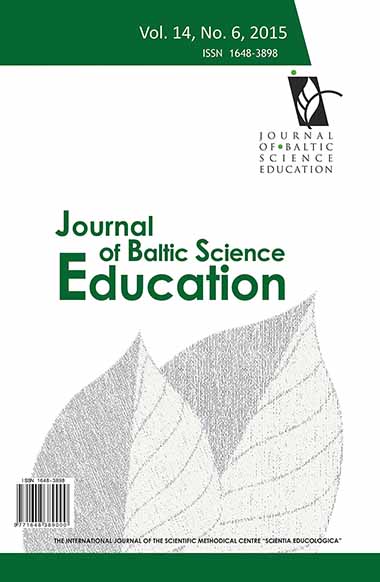THE EFFECTIVENESS OF INQUIRY BASED SCIENCE EDUCATION IN RELATION TO THE LEARNERS´ MOTIVATION TYPES
THE EFFECTIVENESS OF INQUIRY BASED SCIENCE EDUCATION IN RELATION TO THE LEARNERS´ MOTIVATION TYPES
Author(s): Jiri Skoda, Pavel Doulík, Martin Bílek, Ivana ŠimonováSubject(s): Social Sciences, Education, School education
Published by: Scientia Socialis, UAB
Keywords: educational practice; inquiry-based science education; learners’ motivation types; quantitative research; testing;
Summary/Abstract: The study presents the results of the quantitative research focusing on the effectiveness of the inquiry based science education (IBSE) in correlation to motivation types of learners. Reflecting the fact that the learning results are impacted by the inner motivation, the main aim of the research was to find out whether there are differences in IBSE effectiveness in four motivation types - explorers, directors, coordinators, and accurators. The IBSE approach was applied for the period of five months to 395 fifteen-year-old learners of Czech lower secondary schools. The IBSE effectiveness was tested before the instruction (pre-test), immediately after it (post-test1) and four months later (post-test2). The results of four motivation types were compared. Directors reached the best results in post-test1; explorers in post-test2; accurators´ results were the worst of all. These findings show that the IBSE cannot be applied as a universal method; teachers should adjust its exploitation to learners’ individual particularities.
Journal: Journal of Baltic Science Education
- Issue Year: 14/2015
- Issue No: 6
- Page Range: 791-803
- Page Count: 13
- Language: English

